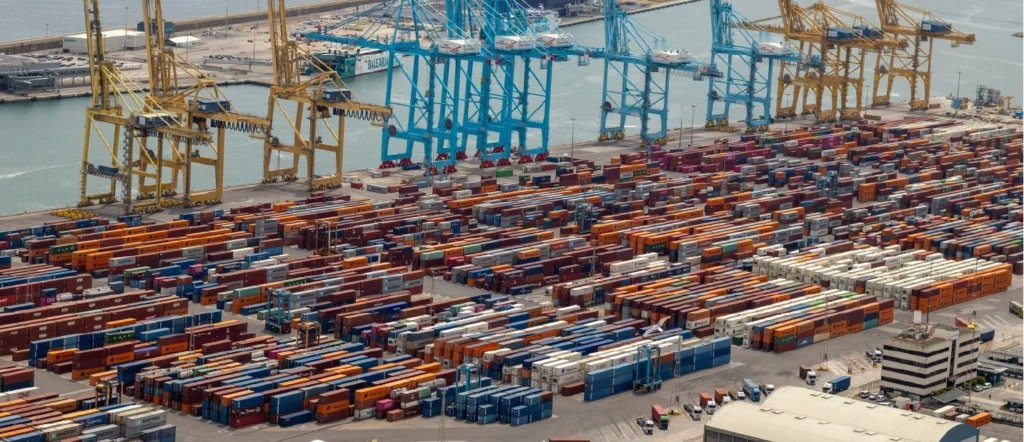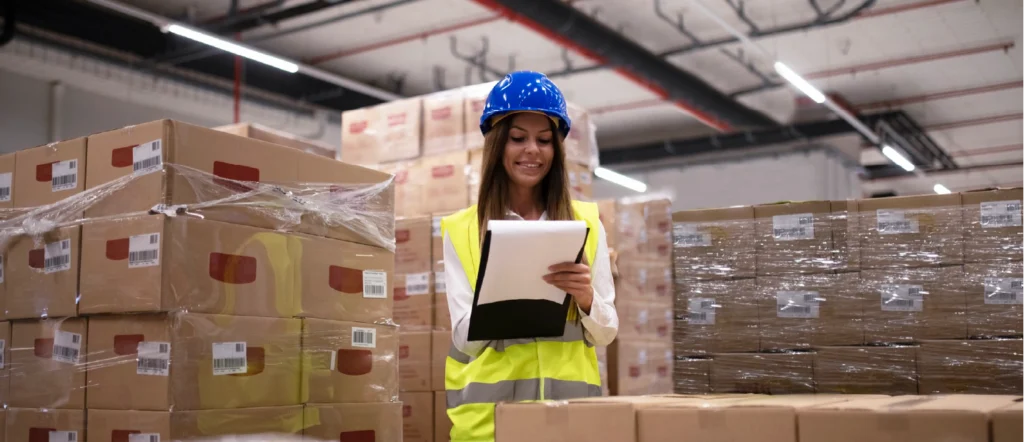What is a Tax Deposit?
A bonded warehouse is an area designated and authorized by the customs authorities where goods can be stored, processed or handled without the immediate payment of import duties. In the context of the automotive industry, these warehouses allow assemblers and manufacturers to store components, parts and vehicles without paying duties until they are needed for sale or final use.
How does it work in the automotive industry?
| Authorization | Automotive companies must request and obtain authorization from the customs authorities to establish a bonded warehouse. | Specific requirements are established in terms of infrastructure, security and control systems to ensure compliance with customs regulations. |
| 2. Goods Receipt | Imported components, parts and vehicles enter the bonded warehouse under a special customs regime. | Customs documents are issued to record the entry of the goods and their location within the warehouse. |
| 3. Storage and Processing: | Goods are stored in an organized and secure manner within the warehouse. | Various operations such as vehicle assembly, fabrication, repair and sorting can be performed. |
| 4. Inventory Control | Detailed inventory control of stored goods is maintained. | Computerized systems make it possible to track the movement of each component and vehicle within the depot. |
| 5. Exit of Goods | When the goods are ready for sale or final use, they may be removed from the bonded warehouse. | At that time, the corresponding taxes are settled and the necessary customs documents are issued for departure. |
You might be interested in: Learn I Tax Deposit
Benefits for the Automotive Industry
1. Tax deferral
The main attraction of the bonded warehouse is that it allows the deferral of tax payments (VAT, IEPS, import duties, etc.) while the goods are in storage. In the case of the automotive industry, where a high volume of imported parts and components are handled, this translates into a considerable improvement in cash flow, since taxes are paid until the goods leave the warehouse for distribution or sale.
Operational flexibility
Bonded warehousing allows automotive companies to store goods for extended periods of time without the need to clear them immediately. This provides flexibility to manage inventories and production times, ensuring that parts or components are used when they are really needed, avoiding additional storage costs and risks of obsolescence.
3. Supply chain optimization
By allowing products to be held in a customs-suspended state, the bonded warehouse facilitates more efficient supply chain scheduling. Automotive plants can synchronize the arrival of just-in-time inputs, reducing the need to maintain large inventories and minimizing the risk of production interruptions.
4. Reduction of logistic costs
Automotive companies can consolidate shipments, storing different batches of goods and reshipping only what is needed. This not only reduces transportation costs, but also optimizes the handling of goods and reduces the likelihood of delays that can impact production lines.
5. Ease of re-export
For products that are not marketed in Mexico and are re-exported to other markets, the bonded warehouse allows the merchandise to avoid paying import duties, since it was never officially entered the Mexican market. This is key for many automakers and auto parts manufacturers that operate in Mexico as an export hub.
6. Handling of goods in process of transformation
Mexico's tax warehouse regulations allow companies to perform certain industrial processes on products while they are in bond. For the automotive industry, this means that imported parts can undergo additional processes (assembly, modification, etc.) before they are considered to have been "introduced" to the market, maximizing the value added before taxes are paid.
7. Improved risk management
Bonded warehousing also provides better management of demand-related risks. Since cars and parts can fluctuate in demand depending on the market, having inventory in bonded warehousing allows companies to adjust their sales and distribution timing according to market conditions, without worrying about the immediate tax burden.

Important Considerations
- Security: Bonded warehouses must meet high security standards to protect goods and prevent smuggling.
- Control: A strict control system is required to avoid loss or detour of goods.
- Audits: Customs authorities conduct periodic audits to verify compliance with regulations.
Finally, bonded warehousing is a fundamental tool for the automotive industry, as it optimizes production processes, reduces costs and improves operational efficiency. By understanding the benefits and requirements associated with this customs regime, companies can take full advantage of the benefits it offers.
Concrete examples of how the tax warehouse is used in the automotive industry in Mexico:
| Automobile manufacturers (OEMs) | Ford in Hermosillo Automobile assembly plants, such as Ford's Hermosillo plant, use the bonded warehouse to store imported parts and components to be used in the manufacture of vehicles. These assemblers can defer payment of taxes on imported parts until the cars are ready to go to market. This allows them to manage their cash flow efficiently and synchronize production times with market demands without having to worry about paying large amounts in taxes until the vehicles are ready for distribution. |
| Auto parts manufacturers | Bosch in Querétaro Companies such as Bosch, which manufacture automotive components (brakes, injection systems, etc.), also benefit from the bonded warehouse. Bosch imports components from different parts of the world and stores them in bonded warehouses in Mexico before they are assembled or distributed. While the components are in the warehouse, no taxes are paid, which allows the company to manage inventories and production without compromising cash flow. This is crucial when production times are long or when the final destination of the parts is export. |
| Distributors of imported vehicles | BMW and its import operations Distribution companies such as BMW, which import complete vehicles from Germany or other countries, also make use of the bonded warehouse. The cars may be stored in the bonded warehouse while the nationalization process takes place or while awaiting sale. Import taxes are not paid until the vehicles are sold and leave the warehouse for the dealerships. This allows BMW to optimize inventory management and adjust the release of vehicles according to dealers' needs, without charging immediate tax costs. |
At ABC Logistics we have this service of Fiscal Warehouse, NOM compliance, among other foreign trade services to add value to your business.
Subscribe to our newsletter to receive logistics and marketing news that maximize your business!





